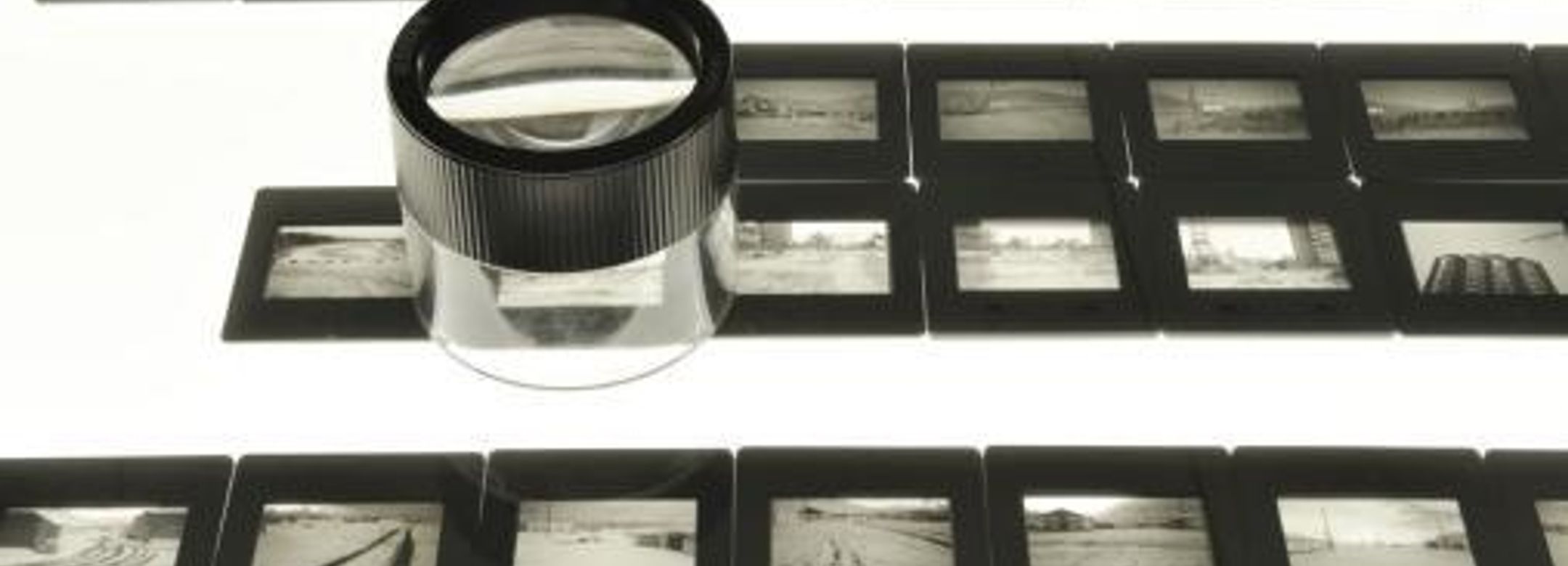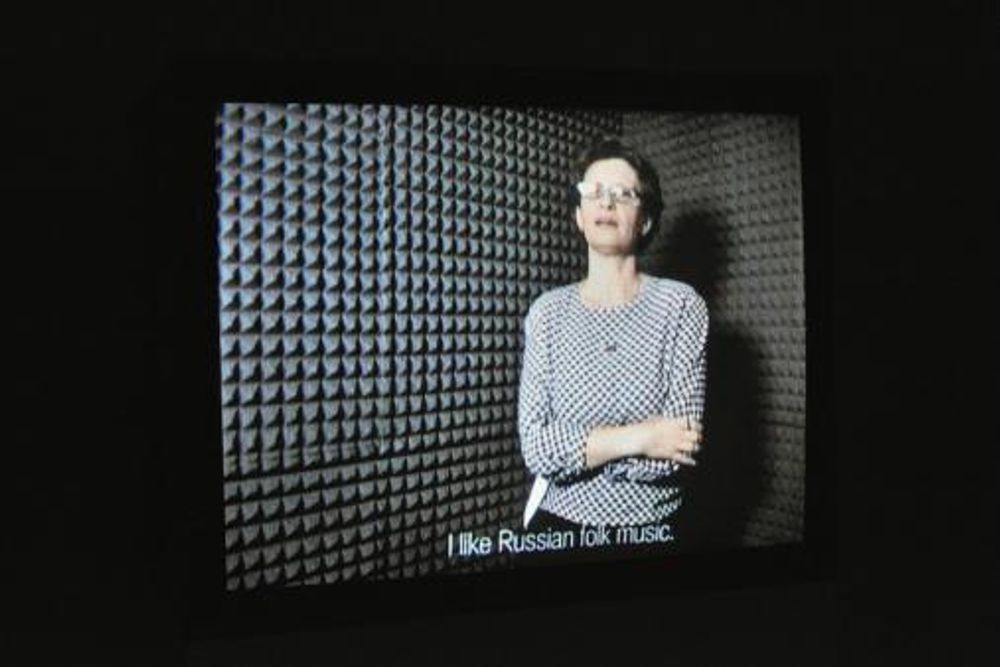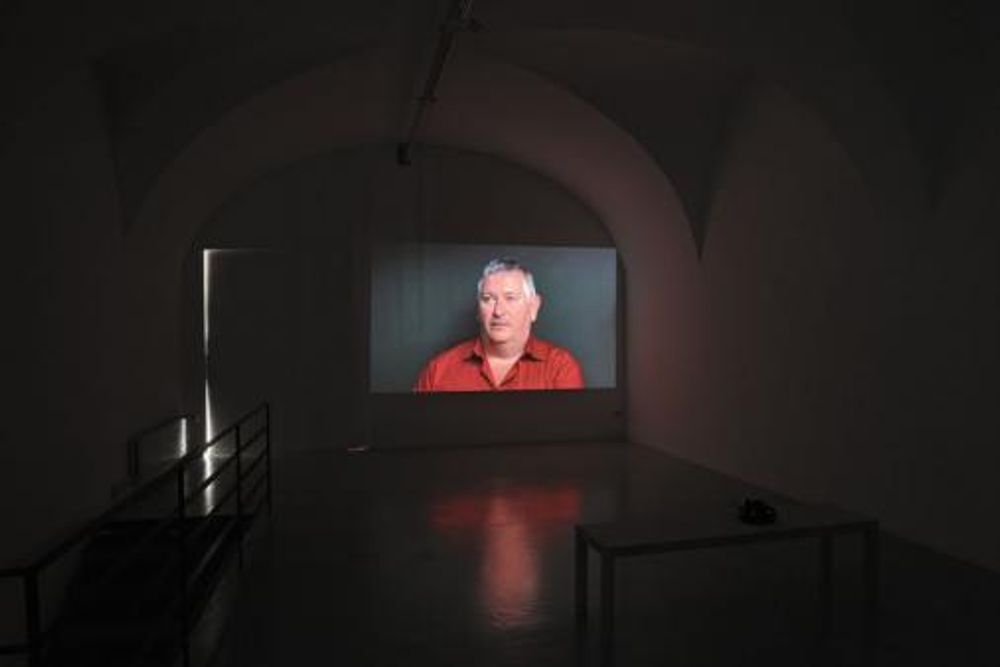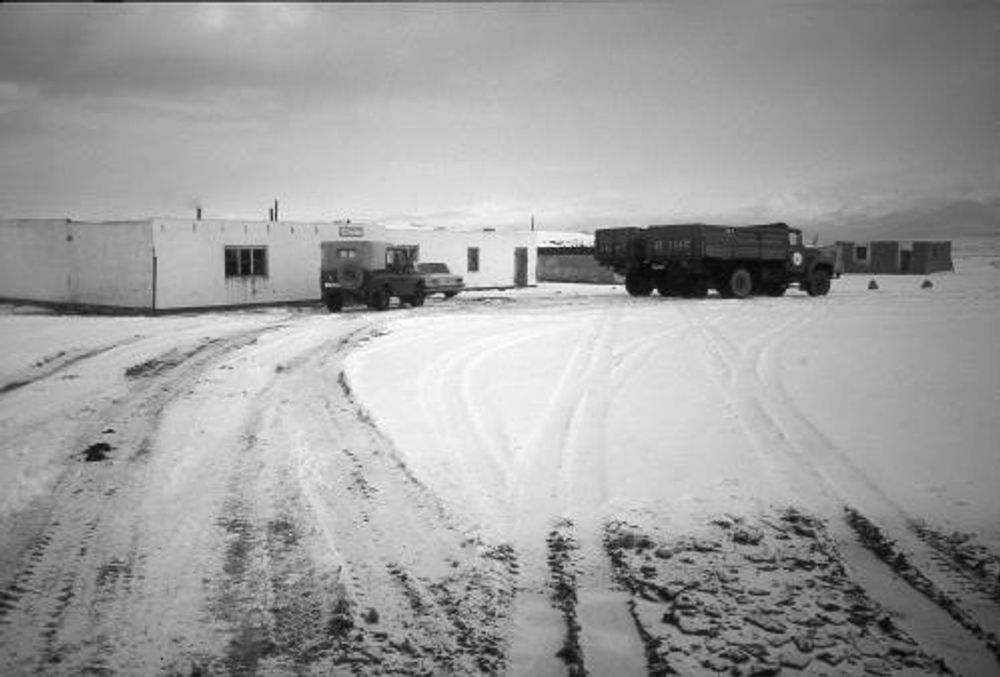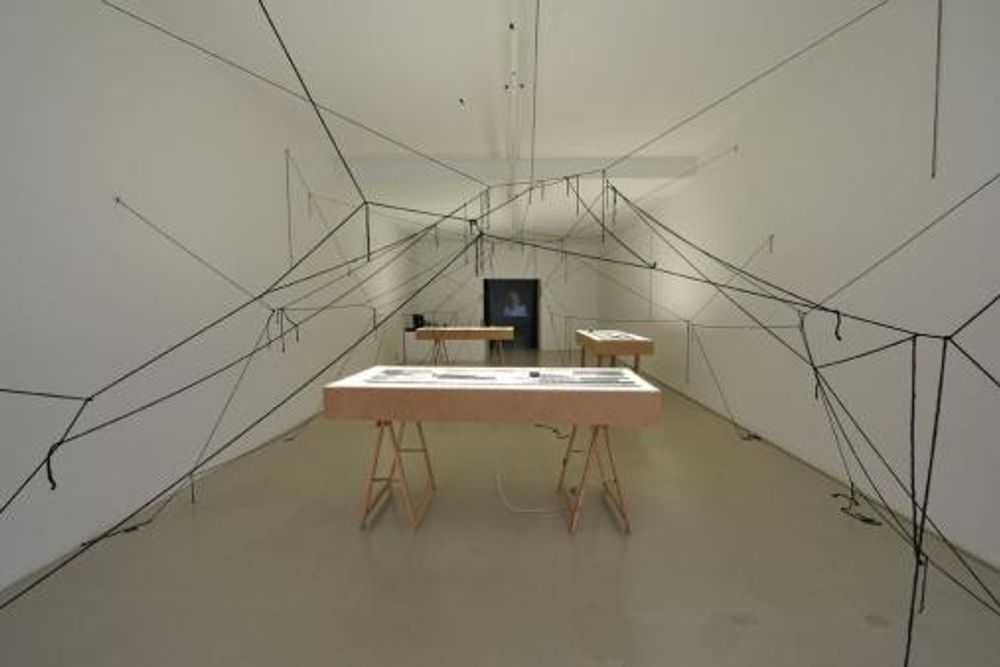KATARINA ZDJELAR – MICHAEL HÖPFNER
Curated by Luigi Fassi
Conceived as free dialogue between two artists, the show presents for the first time in Italy the work of Katarina Zdjelar (Belgrade, 1979; lives and works in Rotterdam) and Michael Hoepfner (Krems/Donau, 1972; lives and works in Vienna). The two artists try in different ways to produce a reflection on the dynamics of collective memory within European culture, by raising a number of questions about the results of the recent political and economic developments in the industrialised West. Covering differing time periods, strained between past and future, Hoepfner and Zdjelar ultimately propose a reflection on the geography of cultural erosion by their raising of doubts as to the idea of progress being the matrix of Western society.
Katarina Zdjelar’s reaearch is focussed on the use of language as an instrument for transcultural analysis. In A Girl, the Sun and an Airplane (2007), Zdjelar asks some citizens of the Albanian capital Tirana to speak Russian. This mnemonic approach allows her to recall the age of Enver Hoxha’s dictatorship, when Russian was the language of the country’s political and cultural life. The work allows memories to emerge from the depths of the collective unconscious, giving evidence of language as the privileged space in the sedimentation of cultures, policies and memories. The contrast between contemporary Albania and the fragmented memory of its citizens regarding their country’s recent past marks a place of indetermination, which turns Zdjelar’s work into a gesture of radical examination.
The video work Everything is Gonna Be (2008) was been realized in Norway. For this work, the artist involved a group of middle aged persons who had grown up in the ease of the Norwegian welfare system created in the Sixties. The artist asked the group to perform the celebrated Beatles’ song “Revolution 1” as a dialogue in two parts, focussing on the events of 1968 and on the unresolved relationships between revolution and violence, social change and political extremism. Zdeljar’s work transforms the flawed English of the singers, into a representation of participants’ inadequacies regarding the content of the song. A work emerges which focusses on the discomfort generated by the dissonance between the ambitions of youth and the actual biographies of the adult participants. Thus, the work questions a whole generation: the one that participated in ‘68 in Europe. It questions the relationship between wealth and civic commitment, and between political activism and social benefits.
In the last few years, Michael Hoepfner’s art has concentrated on the practice of geographical and cultural errancy. The artist’s approach is to hike through entire regions, cities and natural landscapes on foot. In An Outpost of Progress (2009; titled after Joseph Conrad’s novel) Hoepfner spent several months walking the high plateaus of Tibet, thus covering territories in which foreign citizens are not permitted to walk freely, and territories which are among the least-known worldwide. These regions emerge as places of unfinished, deserted highways and abandoned military bases; places of environmental and architectural devastation of various types. Far from any ideal of natural idyll and environmental purity, the area appears as an outpost of a global decay caused by the industrialised world. Presented as a installation composed of slides, objects, diary entries and documentary materials, Outpost of Progress is the result of the Austrian artist’s radical view of the present times and the ambiguous space of our collective imagination.
